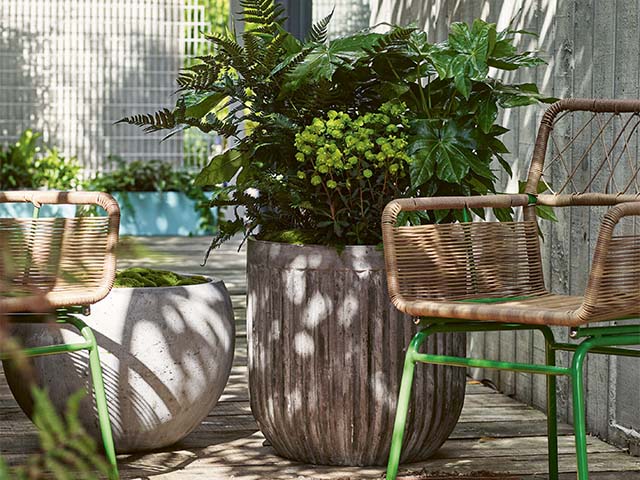In the dynamic landscape of modern gardening, plant containers have emerged as indispensable tools for both seasoned gardeners and urban dwellers alike. These adaptable containers offer much more than simply a space for plants to flourish; they signify a fundamental change in the way we currently approach gardening. From enhancing flexibility and mobility to fostering creativity and sustainability, plant container have become a cornerstone of contemporary gardening practices. This article explores the myriad reasons why plant containers are not just beneficial but essential for modern gardening enthusiasts.
1. Flexibility In Garden Design
Gone are the days when gardening was confined to expansive plots of land. Modern gardening embraces flexibility, allowing individuals to cultivate greenery in diverse environments, from small urban balconies to compact indoor spaces. Plant containers play a pivotal role in this flexibility, offering the ability to create miniature gardens anywhere. Whether you’re limited by space or seeking to experiment with different plant combinations, containers provide the freedom to design and redesign your garden layout with ease.
2. Optimal Plant Health And Care
Plant containers provide optimal conditions for plant growth and health. Unlike traditional garden beds, containers allow for precise control over soil quality, drainage, and exposure to sunlight. This control is particularly beneficial in urban settings where soil quality may be poor, or space is limited. Gardeners can tailor the soil composition to suit specific plant needs, ensuring they thrive despite environmental constraints. Containers also improve the control of pests and lower the chance of soil-borne illnesses, which benefits plants in general.
3. Mobility And Adaptability
One of the most significant advantages of plant containers is their mobility. Whether you’re renting a home, relocating frequently, or simply enjoying rearranging your garden layout, containers offer the flexibility to move plants effortlessly. This adaptability is invaluable for urban gardeners who may need to protect delicate plants from harsh weather or maximize sunlight exposure throughout the year. Container gardening allows for seasonal adjustments and experimentation with different plant species, enhancing the gardening experience without the constraints of fixed garden beds.
4. Creative Expression And Aesthetic Appeal
Containers serve as artistic mediums in modern gardening, allowing enthusiasts to express their creativity and personalize outdoor spaces. Gardeners may create visually spectacular focal points in their gardens or match their home decor with the range of containers available, ranging from sleek modern designs to rustic terracotta pots. Mixing and matching containers of various sizes, shapes, and materials adds visual interest and transforms ordinary spaces into vibrant, living landscapes. This artistic feature improves gardens’ aesthetic appeal while also encouraging a closer bond between people and their outside surroundings.
5. Space Optimization And Urban Gardening
Space is a valuable resource in crowded urban environments. Plant containers enable urban dwellers to maximize vertical and horizontal spaces, turning balconies, rooftops, and even windowsills into productive garden spaces. Vertical gardens, herb gardens, and compact fruit trees thrive in containers, offering urbanites opportunities to grow fresh produce and ornamental plants without relying on expansive land. Container gardening promotes sustainability by utilizing available space efficiently and reducing the environmental footprint associated with food production and transportation.
6. Environmental Sustainability
From reducing water consumption to promoting biodiversity, plant containers contribute to environmental sustainability in various ways. Because of their regulated watering systems and lower rates of evaporation, containers consume less water than traditional gardens. Moreover, container gardens can support native plant species and pollinators, enhancing urban biodiversity and supporting local ecosystems. By cultivating plants in containers, gardeners can minimize soil erosion, conserve resources, and contribute positively to the surrounding environment, making sustainable gardening practices accessible to urban and suburban communities alike.
7. Educational Opportunities And Community Engagement
Plant containers provide gardeners of all ages with the opportunity to learn about sustainable methods, ecosystems, and plant care. Community gardens and school programs often utilize containers to teach gardening skills and foster environmental stewardship among participants. Container gardening promotes social interaction and community engagement, bringing people together through shared interests in gardening and local food production. These communal spaces not only beautify neighborhoods but also strengthen community bonds and promote healthy lifestyles.
Conclusion
In conclusion, plant containers are not merely vessels for growing plants; they are essential components of modern gardening practices. Their versatility, mobility, and aesthetic appeal make them indispensable tools for urban dwellers, garden enthusiasts, and educators alike. By embracing container gardening, individuals can enjoy the benefits of fresh produce, enhance their living environments, and contribute to environmental sustainability. Whether you’re starting a small herb garden on your balcony or transforming an urban rooftop into a lush oasis, plant containers empower gardeners to cultivate thriving green spaces wherever they call home.

